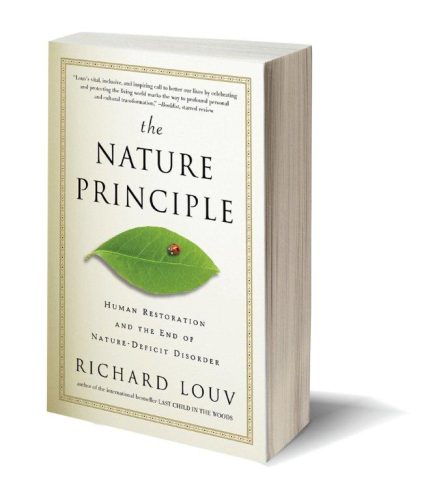Apr 13, 2012
DePaul Earth Week Forum To Examine Connecting With Nature In A Modern World
DePaul Earth Week Forum To Examine Connecting With Nature In A Modern World
In recognition of Earth Week 2012, DePaul University will host a discussion on the value of connecting with nature as an antidote to the stresses of modern life. The talk will feature author Richard Louv, author of "The Nature Principle: Human Restoration and the End of Nature-Deficit Disorder."
The free public forum will take place April 19 at 6:30 p.m. in Room 154 of the Schmitt Academic Center, 2320 N. Kenmore Ave., Chicago. The program is co-sponsored by Rev. Dennis H. Holtschneider, C.M., DePaul’s president, and DePaul's Institute for Nature and Culture (INC) and Department of Environmental Science and Studies.
Louv, a journalist who has authored eight books, has long explored the links between family, nature and community. He argues that the individual’s connection with nature is a key element in building broad public support for more sustainable lifestyles and environmental policies. He also is the founding chairman of the Children & Nature Network and was awarded the Audubon Medal from the National Audubon Society in 2008. His most recent book on raising and educating children to love the natural world has been translated into 10 languages.
“Richard Louv is a leading voice for the idea that people who reconnect to the environment will learn to live more sustainable lives,” said Liam Heneghan, professor of environmental science and INC director. "The Nature Principle focuses less on the hard science and dire warnings of climate change and more on the ways in which people with full and busy lives might reconnect to the natural world.”
About the Institute for Nature and Culture
The Institute for Nature and Culture was established by DePaul to foster collaboration among disciplines and researchers, conservation practitioners and the general public to create a stronger environmental future. Building on widely respected programs in Environmental Science, Urban Ecology and Public Policy, and reflecting the university's long-standing commitment to the Chicago community, the Institute works to develop vision and leadership for environmentalism and to further environmental restoration in the Chicago metropolitan area. The Institute is part of the College of Science and Health, DePaul’s newest college established in 2011 to further assist students pursuing careers in the burgeoning fields of science research and health-related professions.
About DePaul
With more than 25,000 students, DePaul University is the largest Catholic university in the United States and the largest private, nonprofit university in the Midwest. The university offers approximately 275 graduate and undergraduate programs of study on three Chicago and three suburban campuses. Founded in 1898, DePaul remains committed to providing a quality education through personal attention to students from a wide range of backgrounds. For more information, visit www.depaul.edu.

The Nature Principle will be discussed at a DePaul forum on April 19
